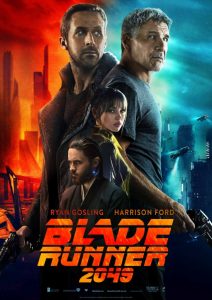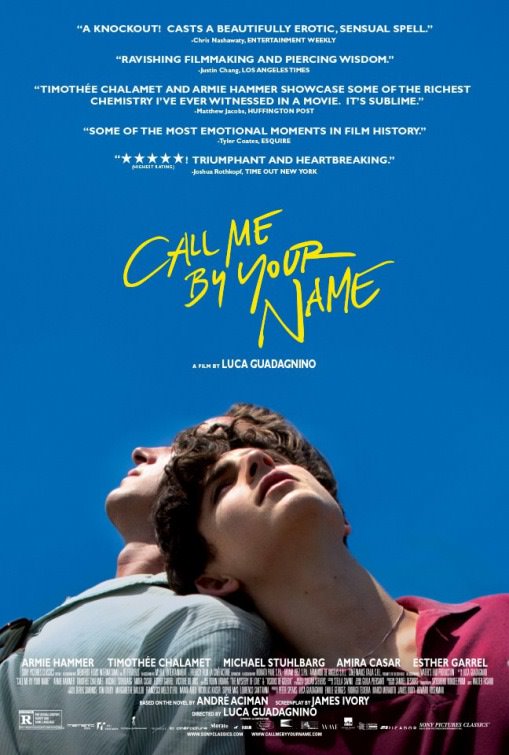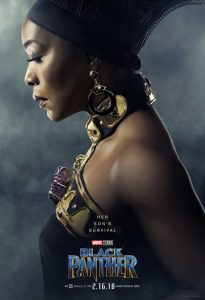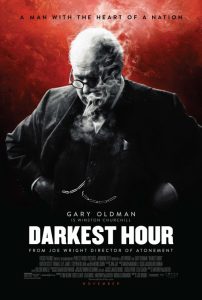Archive for February, 2018
71st BAFTA Awards
THE 71st BAFTA AWARDS /
THE BRITISH ACADEMY FILM AWARDS
Took place on Sunday 18th February 2018 in London at the Royal Albert Hall
BAFTA WINNERS IN THE FILM CATEGORY:
Best Film: Three Billboards outside Ebbing, Missouri
Best Director: Guillermo del Toro – The Shape of Water
Outstanding British film: Three Billboards outside Ebbing, Missouri directed by Martin McDonagh
Best Actor: Gary Oldman – Darkest Hour
Best Actress: Frances McDormand – Three Billboards outside Ebbing, Missouri
Best Supporting Actor: Sam Rockwell – Three Billboards outside Ebbing, Missouri
Best Supporting Actress: Allison Janney – I, Tonya
Rising Star Award: Daniel Kaluuya
Best Visual Effects – Blade Runner 2049
Best Production Design: The Shape of Water
Best Adapted Screenplay: James Ivory – Call Me by Your Name based upon the novel by Andre Aciman
Best Original Screenplay: Martin McDonagh – Three Billboards outside Ebbing, Missouri
Best Editing: Baby Driver
Best Costume Design: Phantom Thread
Best Original Score: Alexandre Desplat – The Shape of Water
Best Hair and Makeup: Darkest Hour
The Nonchalance of Youth
Call Me by Your Name
Director: Luca Guadagnino
Cast: Timothee Chalamet, Armie Hammer, Michael Stuhlbarg, Amira Casar, Esther Garrel, Victorie du Bois
Andre Aciman’s sensuous 1988 debut novel Call Me by Your Name is skilfully adapted into a superb screenplay by James Ivory of Merchant Ivory fame and beautifully brought to the big screen by Italian director Luca Guadagnino.
Call Me by Your Name centres on the erotic summer romance of Elio, a young Jewish Italian boy discovering the essence of his sexuality and his parents American house guest, a 24 year old American classics student Oliver wonderfully played by Armie Hammer (The Man from Uncle) in possibly his best on screen role yet, who is staying with the family in the summer of 1983 as a cultural exchange.
It is the break out performance of star Timothee Chalamet as the restless Elio which is the cinematic revelation and as he deftly centres the film in all its beauty skillfully conveying the nonchalance of youth and his perpetual desire for self-discovery.
Elio’s parents Mr Perlman played by Michael Stuhlbarg (The Shape of Water) and Annella played by Amira Casar who are a liberal and fairly affluent Italian couple who allow their only son, young Elio all the indulgences of youth.
Director Luca Guadagnino sumptuously captures the Italian country summer creating a gorgeous landscape for Elio and Oliver to indulge in an intimate and erotic affair which is tenderly portrayed without moral judgement or vulgarity, a beautiful depiction of sexual discovery and emotional resonance made poignant by the brevity of their idyllic romance.
In a particularly insightful scene between Elio and his compassionate father, Mr Perlman utters the significant line: “Nature has a cunning way of finding our weakest spot.”
Timothee Chalamet captures all the confusion and emotional insecurity of his various sexual encounters with a luminosity seldom seen in cinema today. Chalamet is indeed a star to watch out for. The luxuriant and lingering tone of the film transports audiences into a languid Italian summer, a beautiful sensuous stupor which they will find difficult to relinquish even as the closing credits appear on the screen.
Call Me by Your Name is beautifully acted particularly by its two male leads and superbly shot, making the film a mesmerizing cinematic experience. There are very few films being produced like this today and Luca Guadagnino captures that visual rarity of a first love on screen with a tenderness and beauty which is reminiscent of the Roman statue from antiquity emerging from Lake Garda.
Audiences that enjoyed the early Merchant Ivory films like Maurice and A Room with a View will love Call Me by Your Name.
This evocative film gets a rating of 9.5 out of 10 and is one of the most exquisite films I have seen aided by an equally brilliant soundtrack.
The Wakanda Usurper
Black Panther
Director: Ryan Coogler
Cast: Chadwick Boseman, Lupita Nyong’o, Michael B. Jordan, Sterling K. Brown, Daniel Kaluuya, Martin Freeman, Andy Serkis, Forest Whitaker, Danai Gurira, Letitia Wright, Angela Bassett, Winston Duke, John Kani
Marvel successfully diversifies its Avengers universe with an inventive self-sustaining Black Panther film. The Black Panther aka T’Challa who becomes king of the technologically advanced yet exclusive central African kingdom of Wakanda after his father T’Chaka played by South Africa’s John Kani is killed in an assassination.
Creed director, Ryan Coogler assembles an all-star cast for Black Panther including Oscar winners Lupita Nyong’o (12 Years a Slave) as Black Panther’s love interest, the beautiful and noble Nakia as well as Forest Whitaker (The Last King of Scotland) as Zuri along with Angela Bassett as Black Panther’s regal mother and Queen of Wakanda, Ramonda.
Black Panther has to fight off the likes of a crazy South African mercenary Ulysses Klaue dubiously played with a terrible accent by Andy Serkis (War for the Planet of the Apes) attempting to steal smuggled vibranium from Wakanda at a buying exchange in Busan, South Korea, a scene in the film which is both brilliantly shot and innovatively orchestrated with a virtual reality car chase sequence.
Back on African soil, T’Challa soon realizes that the real enemy is the American born Erik Killmonger wonderfully played by Michael B. Jordan (Fantastic Four). With the able assistance of his cheeky sister Shuri fantastically played by British-Guyanese star Letitia Wright, Black Panther manages to fight Killmonger in a noble duel about the paternal claim to be the future King of Wakanda.
Director Ryan Coogler ingenuously incorporates lots of African tribalism and cool technology into Black Panther however he does take the superhero genre too seriously by unashamedly politicizing it. This is the Avengers after all, which Spiderman has just joined. Superhero movies are meant to be pure escapism, which is precisely why director Taika Waititi’s Thor: Ragnorak was such a refreshingly funny movie.
What remains to be seen is how effectively Black Panther will be blended into the mainstream Avengers films with the new Avengers: Infinity War opening soon. Chadwick Boseman is not as convincing as the main hero, Black Panther as his counterpart Michael B. Jordan who relishes playing the ruthless villain.
Lupita Nyong’o holds her own and kicks some butt in Black Panther as does rising star Letitia Wright who is an actress to watch out for. Golden Globe winner Sterling K. Brown has a minor role while Oscar nominee Daniel Kaluuya (Get Out) is suitably untrustworthy as Black Panther’s best friend and Wakanda protector W’Kabi.
Whether the much hyped Black Panther’s initial success in African cinemas is translated commercially to international audiences globally remains to be seen, yet the effort and rejuvenation of the highly anticipated Black superhero genre is applauded and provides starring roles for a host of African-American stars who have been clamouring for their own identifiable superhero film.
Marvel fans that enjoyed Captain America: Civil War and The Avengers franchise will certainly appreciate Black Panther, despite some uneven performances. At least now there is a guaranteed diversity of fans attending Comic-Con especially since its coming to Johannesburg in late 2018.
For all its vibrant celebrations of African culture, Black Panther gets a film rating of 7 out of 10.
Hostages of Fortune
All the Money in the World
Director: Ridley Scott
Cast: Michelle Williams, Mark Wahlberg, Christopher Plummer, Timothy Hutton, Charlie Plummer, Romain Duris, Andrew Buchan
Gladiator and Blade Runner director Ridley Scott returns to the big screen with a true life Italian kidnap drama All the Money in the World starring Oscar winner Christopher Plummer (Beginners) as oil billionaire J. Paul Getty whose 16 year old grandson J. Paul Getty III expertly played with a nuanced vulnerability by Charlie Plummer, is kidnapped in Rome in the summer of 1973, based on actual events.
Paul Getty III known as Paul whose mother Gail Getty superbly played by Oscar nominee Michelle Williams (Manchester by the Sea, My Week with Marilyn) who should have received another Oscar nomination for her role in this film, is caught in a precarious situation when she cannot physically pay the $17 million ransom demanded by the thuggish kidnappers.
Gail Getty desperately pleads with her immensely wealthy father-in-law who categorically refuses to pay the ransom for the reasons that if he had to pay $17 million for every grandchild of his that got kidnapped, it would dent his already vast fortune. Ruthless, selfish and thoroughly frugal, J. Paul Getty made his vast fortune through drilling for oil in Saudi Arabia in the late 1940’s.
Similar to his Oscar nominated performance as Tolstoy in The Last Station, Christopher Plummer adds gravitas and respectability to the role of Oil Tycoon J. Paul Getty who surrounded himself with priceless antiquities and an expensive art collection worth millions on his massive Getty’s estate in England, but did not have the compassion to pay for his grandson’s release which would have secured his safe return from a truly nefarious mafia style gang of kidnappers in Calabria, in Southern Italy.
Gail Getty enlists the help of security broker Fletcher Chace played by Oscar nominee Mark Wahlberg (The Departed) as they both along with the Italian police try to expedite the safe return of Paul Getty. What follows is a tense kidnap drama in the style of Daniel Alfredson’s Kidnapping Mr Heinken.
With cinematic panache, director Ridley Scott makes full use of his Italian locations with extensive shots of Rome and its ancient Ruins along with the frenetic buzz of the Italian capital augmented by the ever present paparazzi as they hound the Getty family in what was to become one of the most sensational kidnap dramas of the 1970’s.
Gail Getty’s ex-husband, J. Paul Getty II played by Andrew Buchan, goes from heading up his father’s European oil empire to becoming a heroin addict in Morocco and is virtually out of the entire negotiation. The negotiation is a fiercely contested battle of the wills between Gail Getty and her ruthless father-in-law. She is desperate to get her beloved son Paul back in one piece.
Supporting actors include French actor Romain Duris as a sympathetic kidnapper Cinquanta as well as Oscar winner Timothy Hutton (Ordinary People) as the Getty’s financier Oswald Hinge.
Christopher Plummer and Charlie Plummer (no relation) are both brilliant as grandfather and grandson. Michelle Williams is fantastic as a desperate mother caught in this prolific dynasty but who conveys increasing helplessness in not being able to rescue her resourceful teenage son.
All the Money in the World is a captivating, stylish and gritty kidnap drama expertly directed by Ridley Scott and receives a film rating of 8 out of 10.
Victory at Any Cost
Darkest Hour
Director: Joe Wright
Cast: Gary Oldman, Kristin Scott Thomas, Lily James, Ben Mendelsohn, Stephen Dillane, Ronald Pickup, Samuel West, David Schofield, Joe Armstrong, David Strathairn
Oscar nominee Gary Oldman (Tinker Tailor Soldier Spy) gives an Oscar worthy performance in his nuanced portrayal of cantankerous British Prime Minister Sir Winston Churchill whose face is completely transformed to look like Churchill thanks to the superb makeup and prosthetic by Kazuhiro Tsuji.
Acclaimed director of Atonement Joe Wright is the perfect candidate to steer this compelling political war drama Darkest Hour as the story meticulously tracks the events from Churchill’s inauguration as prime minister, including a particularly refined scene between the PM and King George VI wonderfully played by Ben Mendelsohn to the anxious events leading up to the ingenuous evacuation of British troops from the beaches at Dunkirk, successfully anticipated and engineered by Churchill himself and the British sea going public.
If Christopher Nolan’s latest film, Dunkirk is a stunning depiction of that crucial maritime military evacuation, then Joe Wright’s Darkest Hour is the companion film showing the political and administrative events which lead to that escape from the invading Nazi forces which were aggressively sweeping across the European continent in May 1940.
The fact that both Dunkirk and Darkest Hour are vying for Best Picture at the 90th Oscars is a testament to how exceptional both films are made. Joe Wright should have got an Oscar nomination for Best Director.
At the heart of Darkest Hour is Gary Oldman’s finest onscreen performance, a superb acting tour-de-force in which he completely embodies every aspect of Winston Churchill from his unconventional drinking habits to his affectionate if often tumultuous relationship with his level headed wife Clementine superbly played by Oscar nominee Kristin Scott Thomas (The English Patient).
Oldman’s performance rarely falters and actually improves as Darkest Hour progresses, a performance with such gusto and insight that all audiences will see is Winston Churchill, a seasoned politician, a risk taker and a man who had the entire fate of the British nation in his sometimes shaky hands, yet who realized the gravity of the approaching invasion of the Germans at the beginning of World War II.
Churchill’s doubt about whether the British must fight Hitler to the bitter end or sue for an untrustworthy peace is conveyed in an extremely relevant scene between him and the king who politely suggests that perhaps as prime minister, Churchill should seek advice from the British public, encapsulated in a jingoistic scene whereby he discusses the grave decision with commuters on the London underground before stepping off at Westminster.
Aided by theatrical costumes by Oscar winner Jacqueline Durran (Anna Karenina) and a sumptuous production design, Darkest Hour is an epic film made all the more riveting by a staggering performance by Gary Oldman who must surely get the long awaited recognition he deserves for his limitless acting talent and his pivotal contribution to world cinema.
Darkest Hour gets a Film rating: 9.5 out of 10 and is highly recommended for viewers that love historical biographies such as The King’s Speech and The Iron Lady.
2017 Berlin Film Festival
2017 Berlin International
Film Festival Winners
The 67th annual Berlin International Film Festival was held from 9th to the 18th February, 2017
The Berlin International Film Festival known as the Berlinale takes places annually in February and is regarded as one of the most prestigious film festivals in the world.
Opening Night Film: Django starring Reda Kateb and Cecile de France
Golden Bear for Best Film: On Body and Soul directed by Ildikó Enyedi
Silver Bear for Best Director: Aki Kaurismäki for The Other Side of Hope
Silver Bear for Best Actor: Georg Friedrich for Bright Nights
Silver Bear for Best Actress: Kim Min-hee for On the Beach at Night Alone
Silver Bear for Best Script: Sebastián Lelio and Gonzalo Maza for A Fantastic Woman
Californian Honour
Den of Thieves
Director: Christian Gudegast
Cast: Gerard Butler, Pablo Schreiber, Curtis Jackson, O’Shea Jackson Jr., Brian van Holt, Evan Jones, Kaiwi Lyman, Dawn Olivieri
First time director Christian Gudegast who was one of the screenwriters on another Gerard Butler film London has Fallen recasts Butler as the tough talking LA cop in the Californian crime drama Den of Thieves which is heavily influenced by the far superior Michael Mann directed thriller Heat.
Gerard Butler plays Big Nick O’Brien who heads up an elite team of L. A. detectives who are hell bent on busting a sophisticated crime ring which robs banks headed up by Merriman wonderfully played by Orange is The New Black’s Pablo Shreiber (13 Hours, The Secret Soldiers of Benghazi).
Merriman along with his second in command Enson Levoux played by Curtis 50 cent Jackson (Get Rich or Die Trying) put in place an elaborate plan to rob the Los Angeles branch of the Federal Reserve Bank where they not only print new dollar bills, but also destroy old money, hoping to steal $30 million dollars before it gets incinerated.
What follows is a fascinating cat and mouse game between Merriman and O’Brien, which director Gudegast teases out the plot for maximum tension to create a gritty crime film that stretches from the seedier sides of L. A. to Long Beach, where there is no honour among thieves.
All the while, there comes between the two main protagonists, a nonchalant middleman and occasional barman Donnie Wilson wonderfully played by O’Shea Jackson Jr, (son of rapper Ice Cube), clearly taking inspiration from Kevin Spacey’s Oscar winning turn in Bryan Singer’s The Usual Suspects.
If audiences are looking for a macho action film, then go and see Den of Thieves.
There is a sufficient amount of action, plot twists and bromance to keep the action going, particularly the malevolent rivalry between O’Brien and Merriman which propels the crime caper to a tantalizing and violent climax shot in a Los Angeles traffic jam on a sun-drenched Californian underpass.
Den of Thieves gets a film rating of 7.5 out of 10 and is worth seeing particularly aimed at male viewers.
History’s First Draft
The Post
Director: Steven Spielberg
Cast: Meryl Streep, Tom Hanks, Sarah Paulson, Jesse Plemons, Carrie Coon, Bob Odenkirk, Bruce Greenwood, Tracy Letts, Michael Stulbarg, Matthew Rhys, Bradley Whitford, Alison Brie
Before Julian Assange, before Edward Snowden, there was the Pentagon Papers.
A top level government study on how the Americans had been involved in Vietnam way before the infamous Vietnam War and how during that bloodletting fiasco, the Americans realized that they were losing the war in South East Asia, yet still continued to send troops in to fight the Viet Cong.
The leaking of the Pentagon Papers, firstly by the New York Times and then more pertinently by The Washington Post during the Nixon administration is the source of Oscar winning director Steven Spielberg’s fascinating film The Post starring two Oscar winners, Meryl Streep (The Iron Lady) as owner of the Post, Katherine Graham and Tom Hanks (Philadelphia) as Ben Bradlee, the executive editor of The Washington Post https://www.washingtonpost.com/ who seizes on the story of a decade and pushes for his newspaper to release the classified documents despite the possible legal or financial consequences.
Streep as usual, is superb as the doubtful and affluent socialite Katherine Graham who inherits her father’s newspaper The Washington Post upon her husband’s death and then is forced into an invidious position when she is called upon to make the critical decision on whether to let the newspaper publish the Pentagon Papers at a time when New York investors are eagerly awaiting The Washington Post Company’s IPO (Initial Public Offering) on the American Stock Exchange, which could hugely benefit the fortunes of the struggling newspaper.
Spielberg packs a lot into The Post, and it would be advisable for viewers to read up thoroughly about that crucial historical period in 1971 which was so decisive and widely regarded as the turning point of American press freedom. All these events occurred prior to the Watergate scandal.
The publication of the Pentagon Papers ultimately changed the American public’s sentiment on the viability of troops in Vietnam and the legal outcome after the Supreme Court ruling elevated Katherine Graham to a media doyenne, a feminist and a massively influential woman who changed the business world’s view on how a single woman can influence and transform a media empire.
There is a solid supporting cast of actors in The Post to add gravitas to a riveting tale of journalistic bravery, including Sarah Poulson as Bradlee’s wife Toni who gives her own feminine perspective on why what Katherine Graham was doing was vitally important and brave. Other supporting actors include Bob Odenkirk, Matthew Phys, Carrie Coon, Jesse Plemons and Tracy Letts.
In the age of the Internet, Fake News and a 24 Hour news cycle, The Post is a critical film to watch and be discussed and is especially relevant in 2018 as back then in 1971, which basically implies that at every historical junction, the media must always hold the country’s government accountable. After all, the news is History’s First Draft.
My only criticism is that screenwriters Liz Hannah and Josh Singer should have contextualized the dramatic events more efficiently so that a 21st century audience could appreciate the bravery of publishing critical information without fear or favour.
The Post is brilliant viewing and a highly recommended film about press freedom under a sinister government which makes the film’s ending all the more relevant. The Post receives a film rating of 8.5 out of 10.
Read more on Katherine Graham – https://en.wikipedia.org/wiki/Katharine_Graham
Read more on Ben Bradlee – https://en.wikipedia.org/wiki/Ben_Bradlee














































